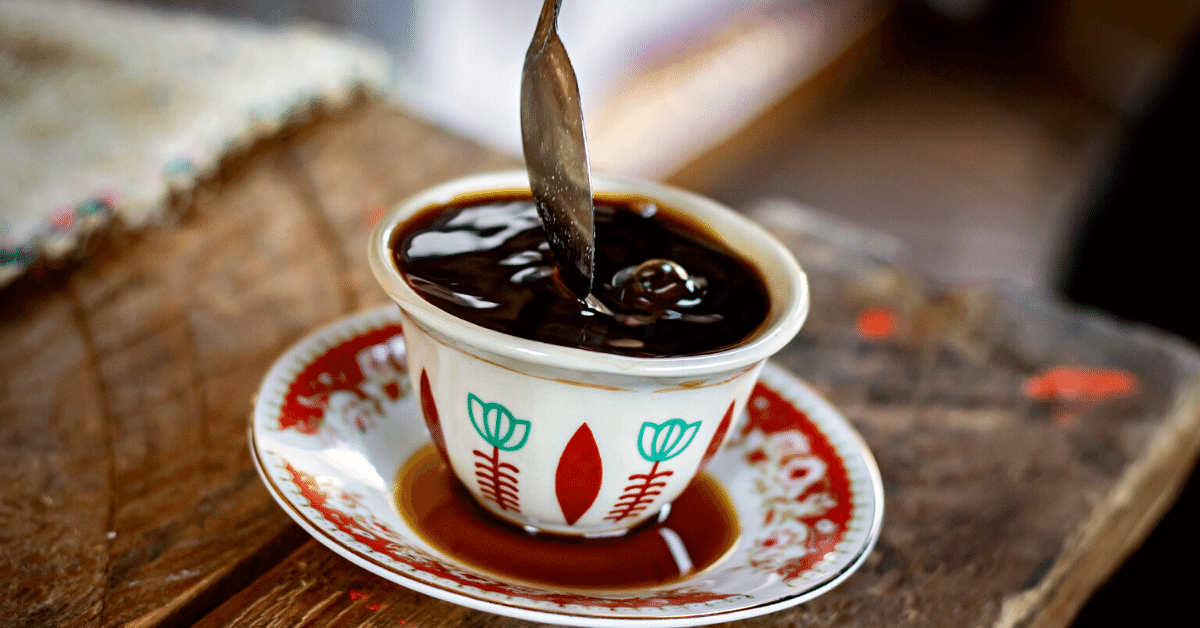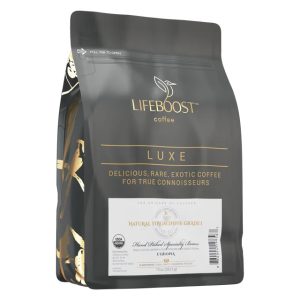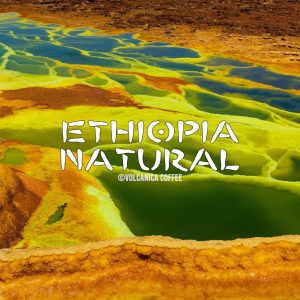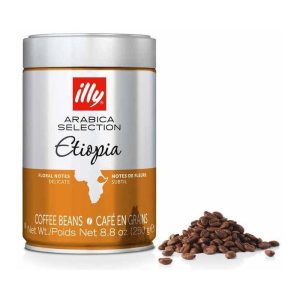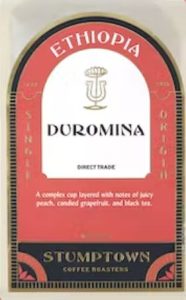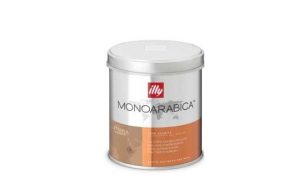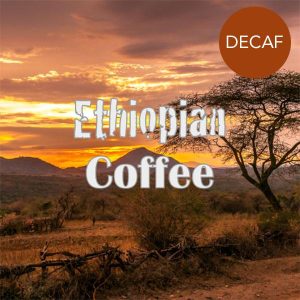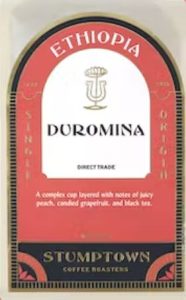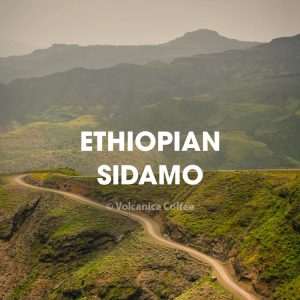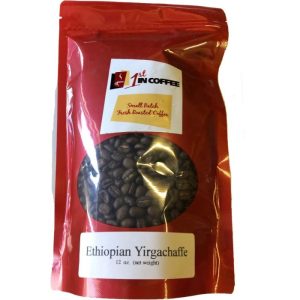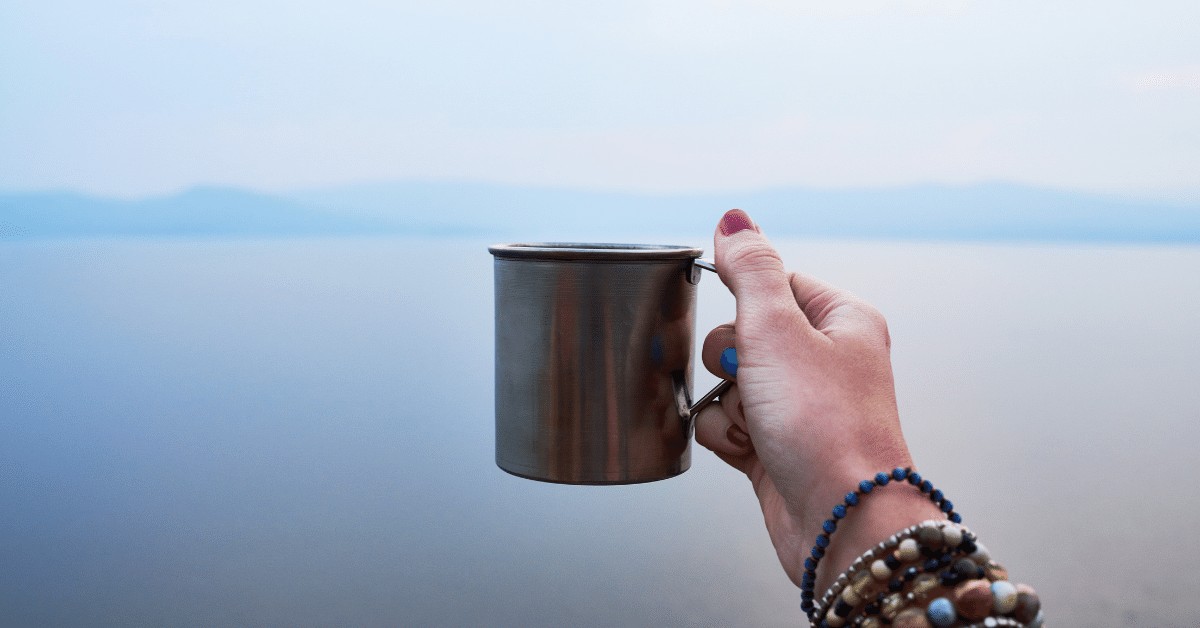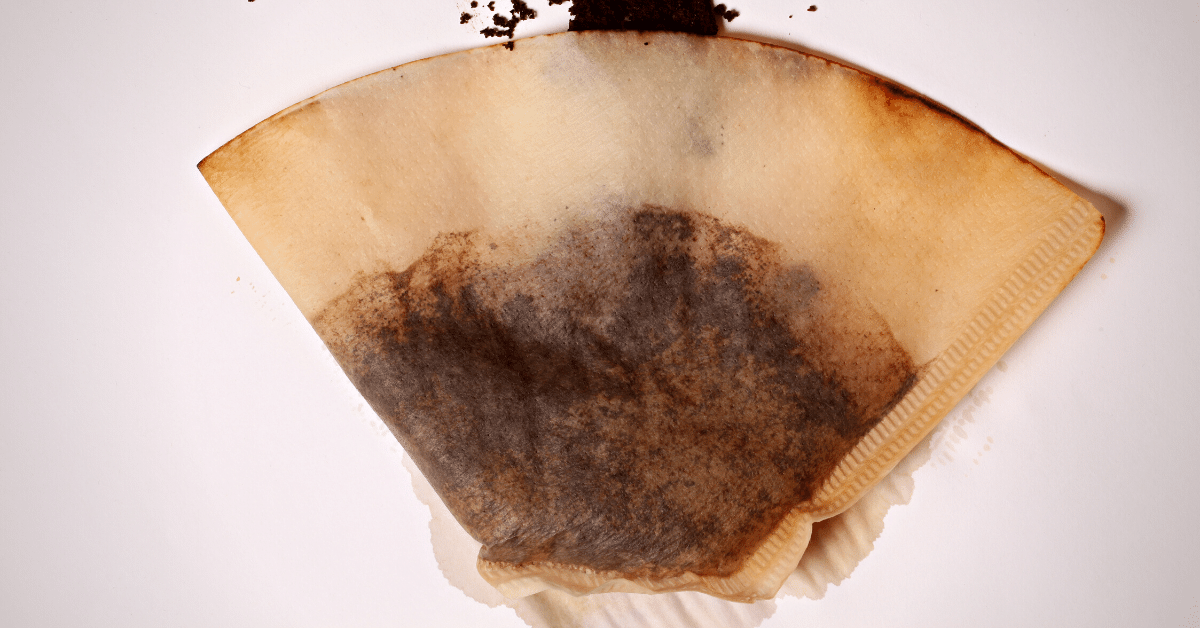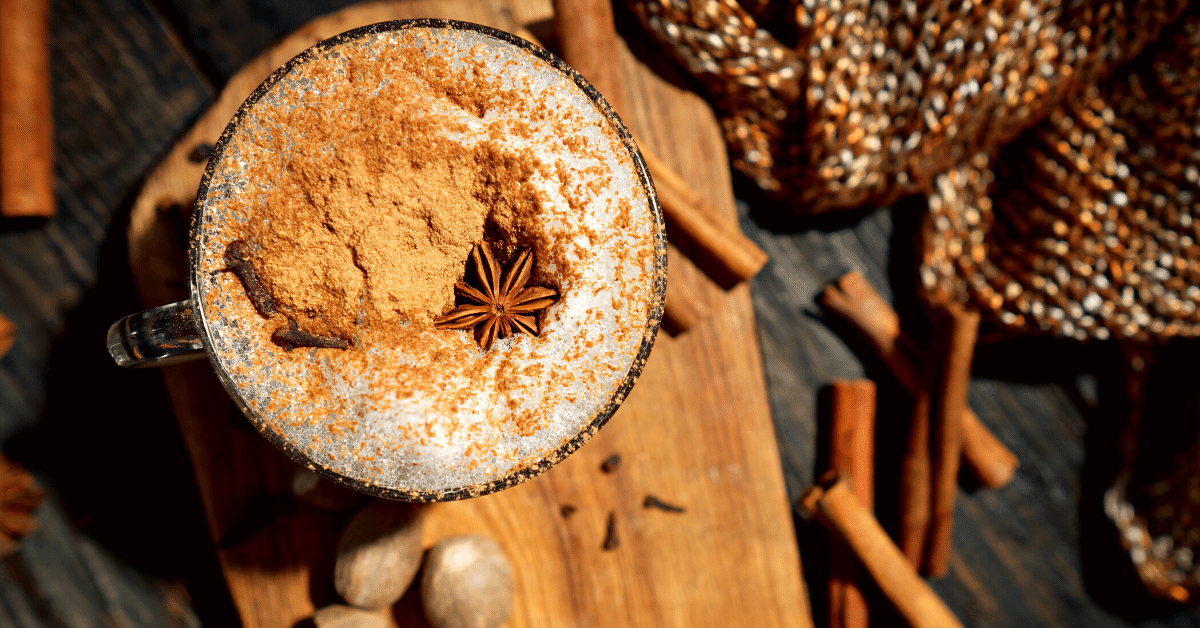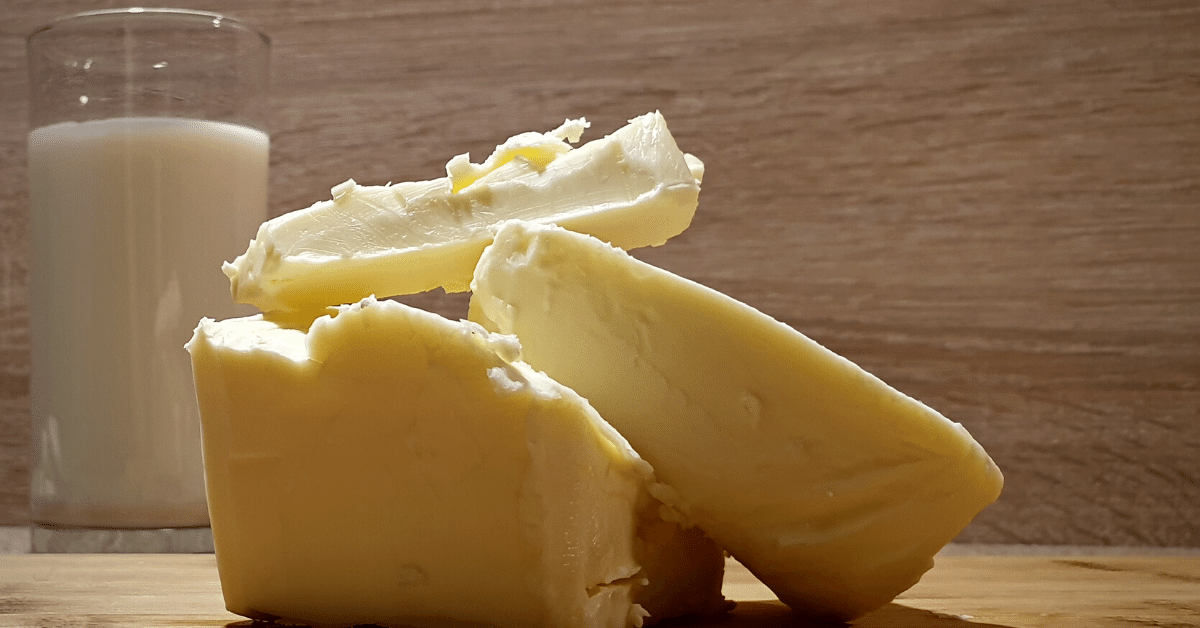Searching for the best Ethiopian coffee? We gathered top picks and reviewed their characteristics, so jump in and find the best one for you.
In a rush? Our top choice is the Lifeboost Ethiopian Yirgacheffe Limited Collection!
Ethiopia is often considered the birthplace of coffee.
With so much history, it begs the question: what’s the best Ethiopian coffee?
Ethiopian coffee beans are my personal favorites, so I have plenty of thoughts on the subject.
In this article, let’s talk about my favorite Ethiopian coffees and why you should try at least some of them.
Let’s jump straight in!
Best Ethiopian Coffee: Top 9 Picks
- Lifeboost Ethiopian Yirgacheffe Limited Collection (Best Overall)
- Volcanica Ethiopia Natural Coffee (Best Natural Process)
- Illy Ethiopia Single Origin Whole Bean Coffee (Best Medium Roast)
- Stumptown Ethiopia Duromina Coffee (Most Interesting Flavors)
- Illy Ethiopia MonoArabica iper Capsules (Best Single-Serve Capsules)
- Volcanica Ethiopian Yirgacheffe Decaf Coffee (Best Decaf)
- Stumptown Ethiopia Mordecofe Coffee (Best Story)
- Volcanica Ethiopia Sidamo Coffee (Best Sidamo Coffee)
- 1st in Coffee Ethiopia Yirgacheffe Whole Bean (Most Traceable Coffee)
Lifeboost Ethiopian Yirgacheffe Limited Collection
In my time around Ethiopian coffees, I found a love for the natural processed ones. They always have a rounder and full flavor profile than washed processes Ethiopians.
This Lifeboost naturally processed coffee is the best Ethiopian Yirgacheffe coffee on the list.
The natural processing means this Lifeboost Luxe has strong and rich flavors that come through in every brew.
Plus, it’s a single-estate coffee, which means it isn’t blended with other crops or farms. You get the full flavor from a single crop on a single farm.
The tasting notes of florals, strawberries, and peaches are spot on. And no matter how you prefer to brew this coffee, you’re sure to taste those in every cup.
I like Lifeboost because they make sure to certify all their coffees with Fair Trade, Rainforest Alliance, and USDA Organic. It’s also 3rd party tested for mycotoxins, heavy metals, and other toxins. It means you really get a pure product.
The only downside is that you have to pay a premium. So maybe save this coffee for a special occasion.
Pros
- The natural process allows the full range of Ethiopian flavors to come through
- It’s a single-estate coffee, so you get the full benefit of a bag from a single farm instead of multiple crops
- The notes of florals, strawberries, and peaches are strong no matter how you prefer to brew
- It’s certified by Fair Trade, Rainforest Alliance, and USDA Organic, so you can be sure the processing of this coffee was safe and healthy
Cons
- It’s expensive, so it’s best saved for a special occasion
Volcanica Ethiopia Natural Coffee
Natural Ethiopian coffees have the roundest and fullest flavors in the world. Granted, that’s just my personal opinion.
This particular Ethiopian is a light roast. Light roasts the most because they retain so many of the coffee’s robust and full flavors. Roast any darker, and you start to lose some of those unique characteristics.
The notes of this coffee are blueberry, jasmine, and sugarcane. Those are pretty typical of Ethiopian coffees.
It also means that you’ll get a full Ethiopian flavor profile with this coffee.
It’s also a single-estate coffee. That means that these beans aren’t mixed with any other crop or any other farm. That way, you get just the flavors from one crop from one farm.
The natural processing of this coffee means you get all the flavors from how the beans were grown.
However, because it’s a light roast, it doesn’t do so well with cream and sugar. It’s the best coffee for those who like to drink it black.
Pros
- The light roast highlights all the unique and robust flavors of this Ethiopian natural
- The notes of blueberry, jasmine, and sugarcane are pretty typical Ethiopian flavors, so you get a full Ethiopian profile
- This is a single-estate coffee, which means it comes from one single farm and isn’t blended with anything else
- The natural process keeps all the flavors throughout fermentation, which means you get rounder flavors
Cons
- Because it’s a light roast, it doesn’t do so well with cream and sugar
Illy Ethiopia Single Origin Whole Bean Coffee
Yes, Ethiopia is home to some phenomenal coffees. This one is another great coffee. But it does still stand out.
It comes from the Yirgacheffe region, which is often considered the birthplace of coffee.
So, you get a chance to taste some history in your cup. In other words, this coffee tastes pretty similar to what coffee used to taste like when humans first discovered it.
It has notes of jasmine and citrus. Those flavors are bright and lively and aren’t overshadowed by the roast.
On that note, this coffee is a medium roast. Typically, I’m not a huge fan of medium roasts in Ethiopian coffees. I tend to find they flatten the rounded flavor profiles.
But this medium roast is spot on. It mellows out the coffee just enough to be palatable to everyone.
Plus, these are 100% Arabica coffee beans, so they’re unblended and smooth.
The only downside is that it’s a batch of roasted coffee. That means you might not get the freshest possible roast with each bag.
Pros
- The Yirgacheffe region is considered the birthplace of coffee, so you’re getting a taste of the original cup
- Notes of jasmine and citrus are bright but not overshadowed by the roast
- The medium roast keeps this coffee mellow and balanced, so the roast doesn’t overshadow the flavors
- It’s 100% Arabica beans, which means it isn’t blended with the inferior and less tasty Robusta beans
Cons
- It’s batch-roasted, so you might not get the freshest possible roast with each bag you buy
Stumptown Ethiopia Duromina Coffee
Stumptown has been in the coffee game for a long time. And they’ve been a respected coffee roaster for that entire time. So you can be sure you’re getting quality coffee.
This particular coffee is a single-origin Ethiopian, so you’re getting a full Ethiopian flavor profile.
Plus, Stumptown roasts this coffee in small batches. Small batches mean that you’re getting fresh roasted coffee with each bag that you buy.
The notes of peach, red grapefruit, and black tea are unique and interesting in Ethiopian coffee.
Ethiopia is known more for deeper fruit flavors like blueberry. It’s a different take on the flavors.
The washed processing of this coffee keeps the flavor profile crisp, clear, and direct in each brew.
This coffee stands out as having the most interesting flavor profile on the list.
The downside is that this coffee comes from a mix of farms. So you’re getting a flavor profile from a micro-region instead of a single farm.
Pros
- It’s a single-origin coffee, so you get a full Ethiopian flavor profile in this coffee
- Stumptown roasts in small batches, so you can be sure you get the freshest roast each time you buy
- The notes of peach, red grapefruit, and black tea are pretty unique and interesting in an Ethiopian coffee
- The washed processing of this coffee keeps the flavor profile crisp, clear, and direct in each brew
Cons
- It isn’t quite a single-estate coffee, so you get a profile of a micro-region instead of a single-farm
Illy Ethiopia MonoArabica iper Capsules
Brewing a whole cup or pot of coffee takes a while. That’s why using single-serve capsules has become popular.
These Ethiopian MonoArabica iper Capsules are a great addition to the single-serve coffee market.
The medium body of this coffee is delicate but balanced. Honestly, it tastes great, no matter your preferred style of coffee.
Think of it as a great middle-ground coffee. It’s not too strong and not too much like tea.
Plus, it’s 100% Arabica coffee. That means that the beans used for each capsule weren’t mixed with the inferior and less tasty Robusta beans.
It’s also a single-origin coffee. All the beans come from Ethiopia. The good part about that is that you get a full Ethiopian flavor profile.
This coffee stands out as the best Ethiopian single-serve coffee pod on the market right now.
The only downside is that these pods are only compatible with iper coffee machines. So, if you have any other machines, you cannot use them, unfortunately.
Pros
- The capsules are convenient single-serve pods, which are great for brewing quick cups of coffee on busy mornings
- It’s 100% Arabica coffee, which means it isn’t blended with any inferior and less tasty Robusta beans
- These capsules are still single-origin Ethiopian, which means you still get a full Ethiopian flavor profile
- The medium body of this coffee is as balanced as it is delicate, so it’s a wonderfully smooth coffee for any palate
Cons
- These pods are only compatible with iper coffee machines, which means they don’t work with other single-serve machines
Volcanica Ethiopian Yirgacheffe Decaf Coffee
Finding single-origin decaf coffees isn’t typical. Most shops don’t want to waste good beans on a coffee that will eventually just taste like decaf coffee.
But with the Swiss Water decaffeination process, shops can still use good beans. And get great flavors.
This Volcanica decaf is a great example.
The Swiss Water process keeps a full range of flavors. And you can certainly still taste the Ethiopian flavors in this coffee.
The notes of lemon, blueberry, and blackberry come through strong. They aren’t lost in decaffeination.
The washed process of this coffee helps keep the flavors strong, too. It keeps the profile nice and crisp.
The medium/light roast balances everything out and doesn’t sacrifice the body of coffee in favor of stronger flavors.
It’s simply the best single-origin Ethiopian decaf option.
The only thing to keep in mind is that you do lose a little bit of the unique Ethiopian flavors through Swiss Water decaffeination. That’s unavoidable.
Pros
- The Swiss Water process is great because you still get a full range of flavors and aren’t left with a chemical aftertaste
- The washed process keeps the flavor profile crisp and clean
- The notes of lemon, blueberry, and blackberry still come through strong
- The medium/light roast helps keep all the flavors intact without sacrificing the body of the coffee
Cons
- You do still lose some of the unique Ethiopian flavors through the Swiss Water process
Stumptown Ethiopia Mordecofe Coffee
Stumptown isn’t new in the game. It knows how to produce great coffee. And this is another example of a wonderful coffee.
The best part? Stumptown shares the story of the farmer, Haile Gebre.
The fact that Stumptown is willing to share Haile’s story is a good sign that they treat Haile well. I always trust roasters who are willing to share the farmer’s face and story.
It also means that this is a single-network coffee. That means that any time you buy a bag, it will only ever come from one of a handful of farms.
The tasting notes of nectarine, melon, and jasmine create a complex and interesting cup. It doesn’t matter how you brew, it will taste wonderful.
The lighter roast allows the full range of Ethiopian flavors to shine.
It’s just a great coffee with a great backstory that really deserves your attention.
The only downside is that the complexity of the coffee means it doesn’t do well with cream and sugar. So, if you are not a fan of drinking your coffee black, skip this one.
Pros
- It’s a single-network coffee, which means it only ever comes from a small handful of farms run by the same farmer
- The tasting notes of nectarine, melon, and jasmine create a complex and interesting cup
- The lighter roast allows the full range of Ethiopian flavors to come through strong and clear
- Stumptown shares the farmer’s story, which means they treat the farmer well
Cons
- Because of the complexity of the coffee, it doesn’t do well with cream and sugar
Volcanica Ethiopia Sidamo Coffee
Sidamo is a growing region in Ethiopia that doesn’t get as much attention as the more famous Yirgacheffe.
However, Sidamo still produces phenomenal coffee. And I couldn’t leave a Sidamo coffee bean off the list, could I?
This Volcanica Sidamo coffee is a flavor bomb waiting to go off in your mouth. The notes of honey, jasmine, and stonefruit are incredible. And they come through no matter your preferred brewing method.
The washed processing means that the flavor profile is both rounded and crisp. You never get any funky sips.
The medium/light roast of this coffee keeps those good flavors strong and intense. It doesn’t sacrifice any unique characteristics. The roast keeps the coffee balanced and delicious.
This Sidamo is a great example of the kinds of coffee that come from the region. And if you haven’t yet, you should really try one.
The only downside is that this coffee comes from a number of small farms. So, you don’t get a farm-specific flavor profile.
Pros
- The notes of honey, jasmine, and stonefruit create a flavor bomb that is both full and rich
- The washed process means that the flavor profile is rounded and crisp on your palate
- The medium/light roast keeps the flavors of the coffee strong and intense
- It’s from Sidamo, which is an interesting companion to coffees from Yirgacheffe and a nice change of pace
Cons
- It isn’t a single-estate coffee, meaning you don’t get a flavor profile specific to a single-farm
1st in Coffee Ethiopia Yirgacheffe Whole Bean
Ethiopian coffee is known for its traceability. Oftentimes you can track a coffee down to the washing station where it was dried and processed.
This is one such coffee. It comes from the Halo Beriti Washing Station. A large number of small farms sell their coffee cherries to the washing station, where the coffee is then processed.
Halo Beriti uses hand-sorting to ensure that only the highest-quality beans get dried and processed. That means that by the time roasted coffee gets to you, it’s only the best beans.
Plus, it’s 100% Arabica coffee. It wasn’t blended with any Robusta beans anywhere along the way.
The medium roast of this coffee keeps it balanced and smooth. It works in any brew.
These Ethiopia Yirgacheffe coffee beans are roasted weekly. That means you can always be certain you’re getting the freshest possible roast when you buy a bag.
The only downside is that you lose a little bit of the unique characteristics because of the medium roast.
Pros
- It’s roasted weekly, so you can always be sure you’re getting a super fresh roast every time you buy a bag
- The medium roast keeps this coffee balanced and smooth
- It’s 100% Arabica coffee, which means it wasn’t blended with any inferior and less delicious Robusta beans
- This coffee is hand-sorted to ensure that only the highest-quality beans end up in the bag you buy
Cons
- You lose a little bit of the unique characteristics because of the medium roast
How To Go About Buying Ethiopian Beans
Let’s briefly chat about how to actually go about making a decision.
This section is everything I think about when choosing the best Ethiopian coffee beans.
Which Growing Regions Are The Best?
Each region within each country does technically have unique flavor characteristics.
But the reality is that the growing region within Ethiopia just isn’t that important for casual coffee drinkers.
I spent the better part of two years developing my coffee-tasting palate. I still had trouble differentiating flavors between regions within Ethiopia.
So no, don’t let anyone tell you that the region matters that much.
The truth is that any of the big growing regions are pretty much the same.
Yirgacheffe, Harrar, and Ghimbi are the most prominent.
If you are inquisitive about Ethiopian coffee and its intricacies, check out our article on what is Ethiopian coffee.
BOTTOM LINE
Any coffee from one of the famous regions is going to be tasty. Don’t get hung up on the region.
Does Certification Matter?
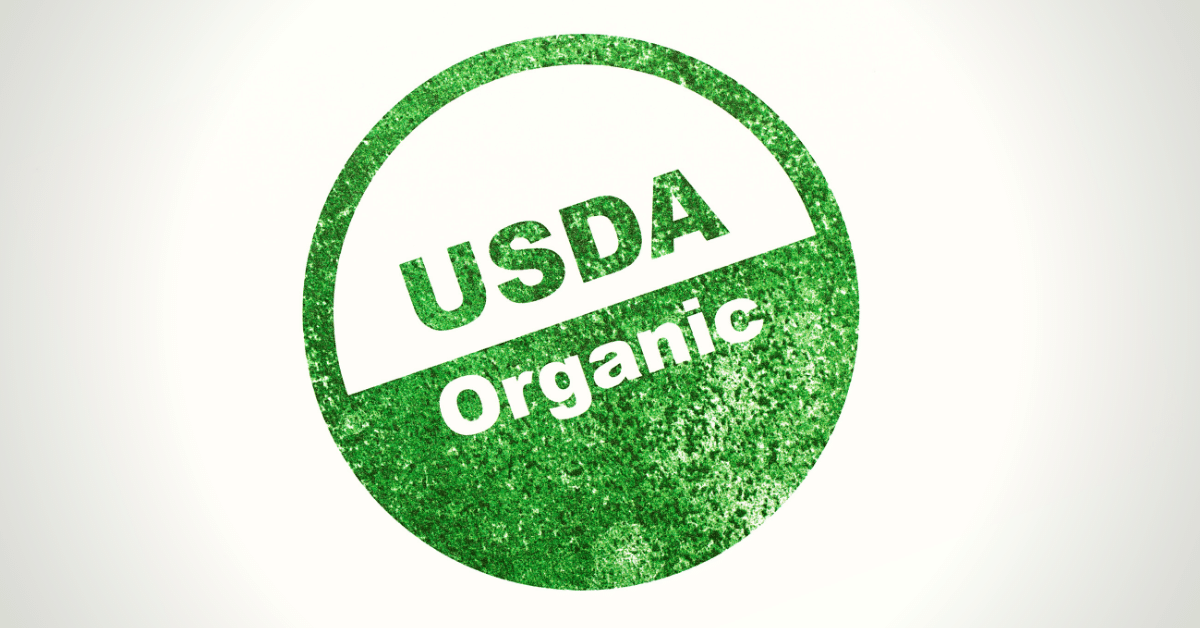
There are many certifications that coffee can get – from Fair Trade to Kosher to USDA Organic.
Farmers have to meet certain standards of coffee production in order to become certified.
It’s like meeting the requirements for passing a driver’s license. First, you take a class and a written exam, then you practice, and then you take a practical exam.
Coffee farmers have to demonstrate that they meet all the requirements for certification.
However, for the smallest farmers, certification is expensive. It takes a significant investment to meet all the requirements for certifications.
A GENERAL RULE OF THUMB
I always trust roasters who are willing to share the story of the farmer over a bigger roaster who has many certifications. That way, I can be certain the farmer was taken care of.
What Is The Best Roast?
Call me biased, but a light roast is really the best option.
Light roasts allow the most amount of unique regional flavors to make it through to your cup.
Darker roasts often lose many of the fun flavors that differentiate profiles from country to country.
Medium roasts are a decent compromise if you really need a mellow and balanced cup of coffee.
BOTTOM LINE
I’d really recommend you try to find light roasts for the best Ethiopian coffee experience.
My Final Verdict
My favorite coffee has all the things I crave in Ethiopian coffee.
It’s a natural processed coffee that has rounded and robust flavors.
It has classic notes of florals, strawberries, and peaches.
These Ethiopian coffee beans are not only single-origin but single-estate. It comes from just one crop from one farm.
It’s the Lifeboost Ethiopian Yirgacheffe Limited Collection.

